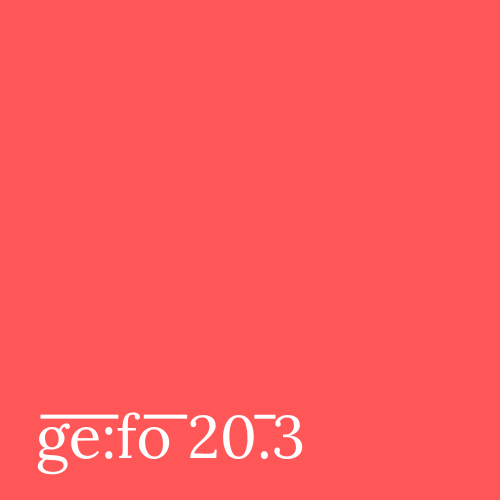Of Bees and Women: Femininity and Climate Change in Mireille Juchau’s The World Without Us
DOI:
https://doi.org/10.18716/ojs/gefo/2021.2567Keywords:
The World Without Us, Mireille Juchau, climate change, cli-fi, femininityAbstract
This article investigates notions of femininity in light of contemporary debates around anthropogenic climate change in literature. Climate change fiction (cli-fi) specifically considers life in the Anthropocene and the consequence of changing climatological realities for human and nonhuman actors in ecosystems. Seemingly straight-forward dichotomies between human and nonhuman, wild and domesticated, useful and harmful subjectivities are being contested, and literary texts increasingly pick up on and reflect the instabilities of previously undisputed dualisms. Mireille Juchau’s novel The World Without Us (2015) explores the intertwined relationships between climate, the animal world, and human subjectivity as it slowly uncovers the multifaceted narration around the Müller family’s grief at the loss of their child. As the family’s life is repeatedly underscored with symbolism of bees, the narration draws parallels between human life and the lives of bees. The text’s elaborate play with multiperspectivity is reminiscent of insect eyes’ compound nature and undulates between fragmentation and complexity. This article explores how Juchau’s novel offers new ways of exploring femininity within notions of grief and suffering on the one hand and the effects of anthropogenic climate change on the other.



